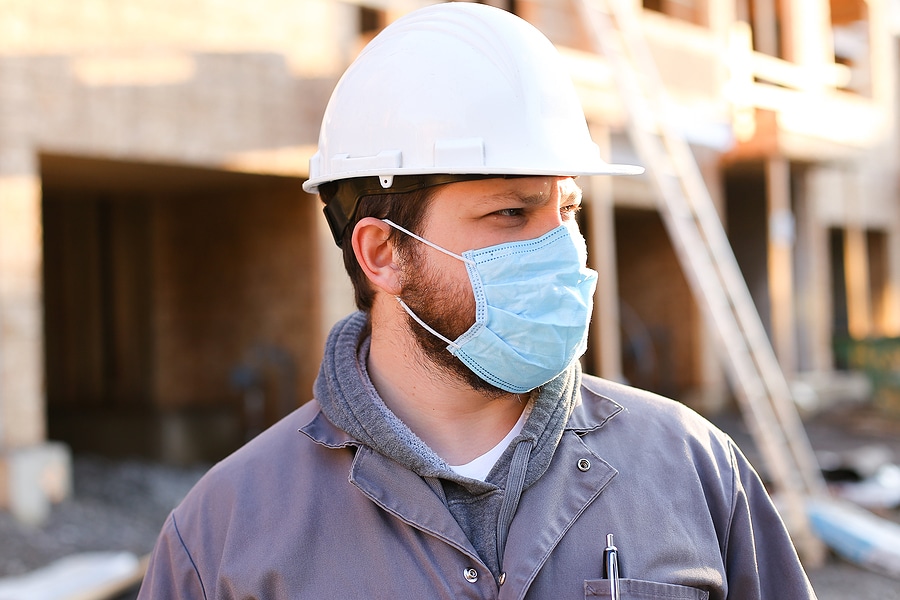Working in construction can be a fulfilling and rewarding career. However, many people in construction often neglect the importance of indoor air quality. Exposure to polluted indoor air for an extended period can cause “Sick Building Syndrome,” leading to respiratory illness, coughing, and fatigue. In severe cases, it can lead to serious health problems. Titans Commercial offers some advice to help you prevent this from happening to your workers.

Proper Ventilation
One of the primary ways to prevent indoor air pollution is to improve ventilation. Ensure that the air conditioning system works efficiently with annual maintenance and cleaning of the ductwork. Check the air filters more often and replace them frequently. Fresh air ventilation will also help bring in fresh air from the outside.
Reduce Chemical Exposure
Construction workers often use hazardous chemicals, including adhesives, paints, and solvents. Risks can be reduced by providing proper and adequate personal protective equipment. Always ensure that employees know how to wear it correctly and have ample training on properly handling chemicals to decrease their risk of inhalation or ingestion.
Cleanliness Is Key
Keeping a clean workplace is necessary to prevent “Sick Building Syndrome.” Dust, debris, and other particles can build up in your workplace and cause respiratory issues, especially during renovation or construction. Regularly clean the workspace and all surfaces to avoid dust or debris buildup.
Make Your Construction Zone a Safe Zone
Creating a healthy workspace that prevents “Sick Building Syndrome” and other indoor air quality issues is vital for construction workers. With the help of inspectors like Titan’s Commercial, you can guarantee your workers a safe work zone here in Houston, TX. We not only offer commercial building inspections, but we also conduct environmental ones as well. So, before your workers fall ill or have lingering health effects from a job site, schedule an inspection with us at (713) 741-3180.

